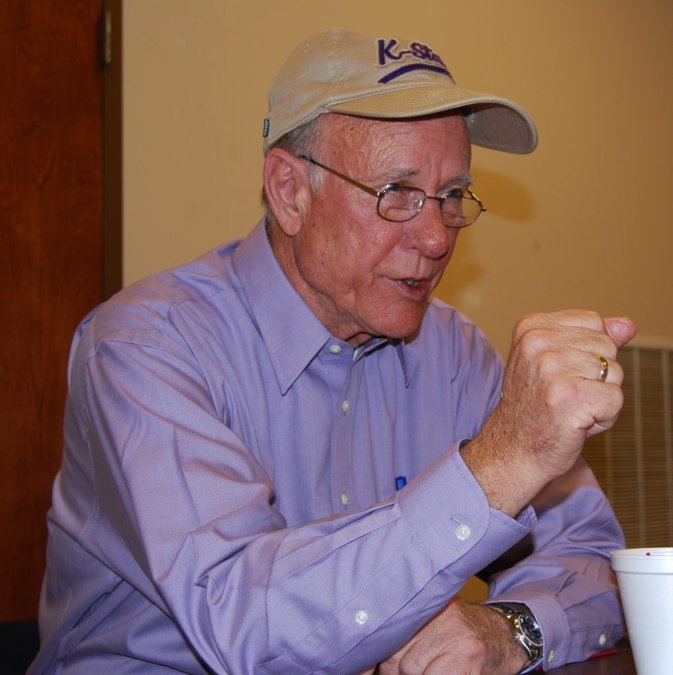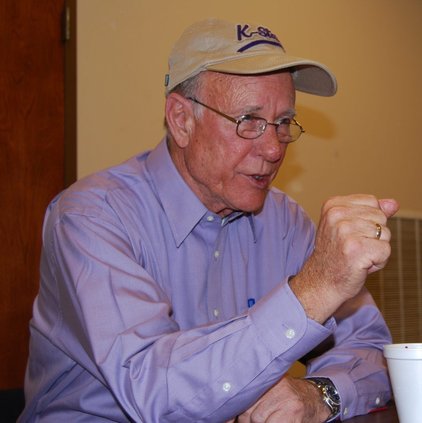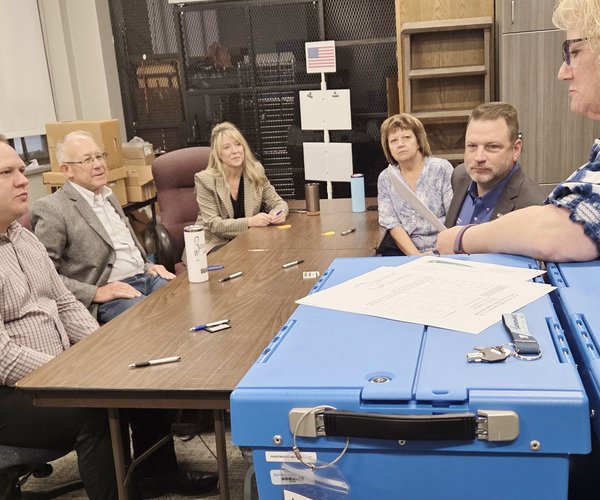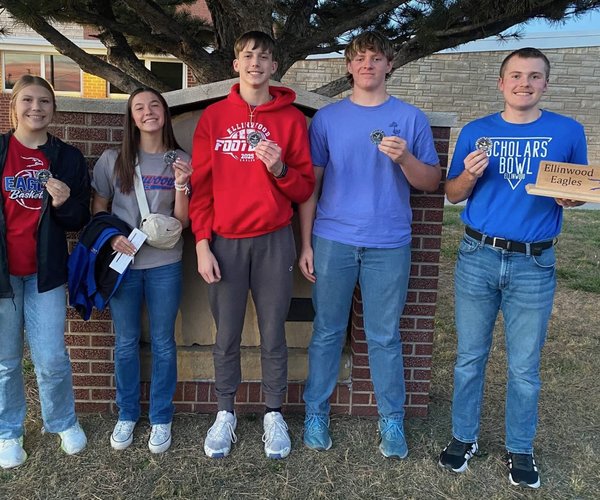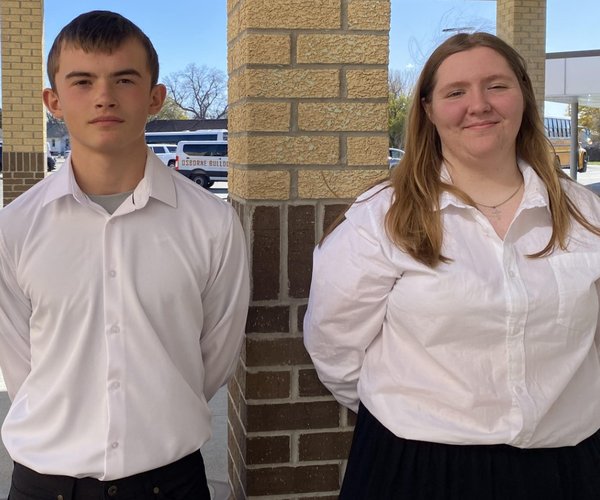TOPEKA — Former U.S. Sen. Pat Roberts fondly recalls personal relationships with U.S. Rep. Kika de la Garza and U.S. Sen. Debbie Stabenow that moved beyond party labels to shape bipartisan agriculture and food legislation.
Roberts said during an October interview at the U.S. Capitol that the get-the-work-done approach he admired, which brought a stalwart Republican like himself together with dedicated Democrats such as De La Garza and Stabenow, should serve as a salve for partisan wounds inflicted by political champions of division.
Raw partisanship placing Republicans and Democrats in uncompromising conflict has been a feature of the latest government shutdown.
“Somehow we’ve got to get control of this ideology,” Roberts said during an interview for the Kansas Oral History Project.
“If you’re talking to somebody who’s an ideologist, they’re going to be right, and you’re wrong, regardless. You just can’t really talk to them, and we have far too much of that. We’re getting to the point of almost a meltdown in what the Senate used to be and the House used to be. That’s a real concern to me. That’s very sad.”
“The first thing you’ve got to learn in politics is to listen, and the second thing is there’s no ‘I’ in politics. It’s a ‘we’ thing,” he said.
Roberts said quality people were exiting Congress because they tired of clashes that inhibited the functioning of government. Some replacements didn’t have benefit of guidance from old-guard lawmakers who understood the value of collaboration, he said.
“I would hope that we could get back to a more bipartisan situation where you got things done,” Roberts said.
He was interviewed for the Kansas Oral History Project by Jackie Cottrell, who was chief of staff to Roberts for 18 years while he was in the Senate, and Mike Seyfert, who was Roberts’ staff director on the Senate Agriculture Committee.
‘Always want to listen’
Roberts, the first person to chair both the U.S. House and U.S. Senate agriculture committees, represented the 1st District of Kansas for eight terms in the U.S. House, from 1981 to 1997. When GOP U.S. Sen. Nancy Kassebaum declined to seek reelection in 1996, Roberts was elected to her seat. He served in the U.S. Senate from 1997 to 2021.
The interviewers asked Roberts about his dedication to regular listening tours that involved visits to every county in the Big First of western Kansas while he was a U.S. representative and subsequently each of the state’s 105 counties while serving as a U.S. senator.
In response, Roberts remembered advice given to him by Frank Carlson, who was elected to the Kansas House, became Kansas governor and then served in U.S. House and U.S. Senate.
“First thing you learn, Sen. Carlson told me, ‘You never get hurt by what you don’t say.’ He said, ‘You always want to listen.’ And, that’s what we did,” Roberts said.
Roberts said it was routine for him to stop in the county seat and run into acquaintances. He encountered critics who “would always show up and give me a hard time,” but that came with the job. It helped to hold onto a sense of humor at the public gatherings, he said, even when his views were at odds with recommendations from Kansas.
Roberts was born in Topeka, grew up in Holton, graduated from Kansas State University and served in the U.S. Marine Corps. He worked as a journalist but eventually followed a political career path, first as a congressional staffer and then as an elected official.
Ike, Dole connections
His father, Wesley Roberts, was deeply involved with Kansas GOP politics and served as chairman of the Republican National Committee.
While still a teenager, due to his father’s role in the Republican Party, Roberts met Dwight Eisenhower, the war hero who was elected president in 1952.
“Obviously, I was very familiar with politics. Perhaps that gave me the impetus to keep going with it,” Roberts said.
In the interview, Roberts looked back on the difficult process of completing the Eisenhower Memorial on Independence Avenue in Washington, D.C. He was chair of the memorial commission for the final six years. There was a protracted family dispute over the design. The monument features an open-air plaza with statues of Eisenhower as president, general and a child. The backdrop is a steel tapestry depicting the Normandy cliffs in France.
“I am sad that it took so long because we lost a lot of World War II veterans, and they couldn’t come up after looking at the World War II Memorial, which Bob Dole did, and then come up and salute their commander. That was my hope,” he said.
Roberts said he remembered speaking with Dole, the GOP’s unsuccessful nominee for president in 1996 and a retired US. Senator, twice a week when Dole was in his 90s. Dole was a disabled veteran from World War II and died in 2021 at age 98. Roberts recalled an especially poignant conversation with Dole.
“It’s fair for elderly men to say this, but all of a sudden he said, ‘Pat, there’s one thing I want you to understand.’ I said, ‘What’s that, Bob?’ He said, ‘I love you.’ And I said, ‘I love you, too, Bob.’ I teared up the whole day. He was a great man.”
Tim Carpenter has reported on Kansas for 39 years. He covered the Capitol for 16 years at the Topeka Capital-Journal and previously worked for the Lawrence Journal-World and United Press International. Kansas Reflector is part of States Newsroom, the nation’s largest state-focused nonprofit news organization.
